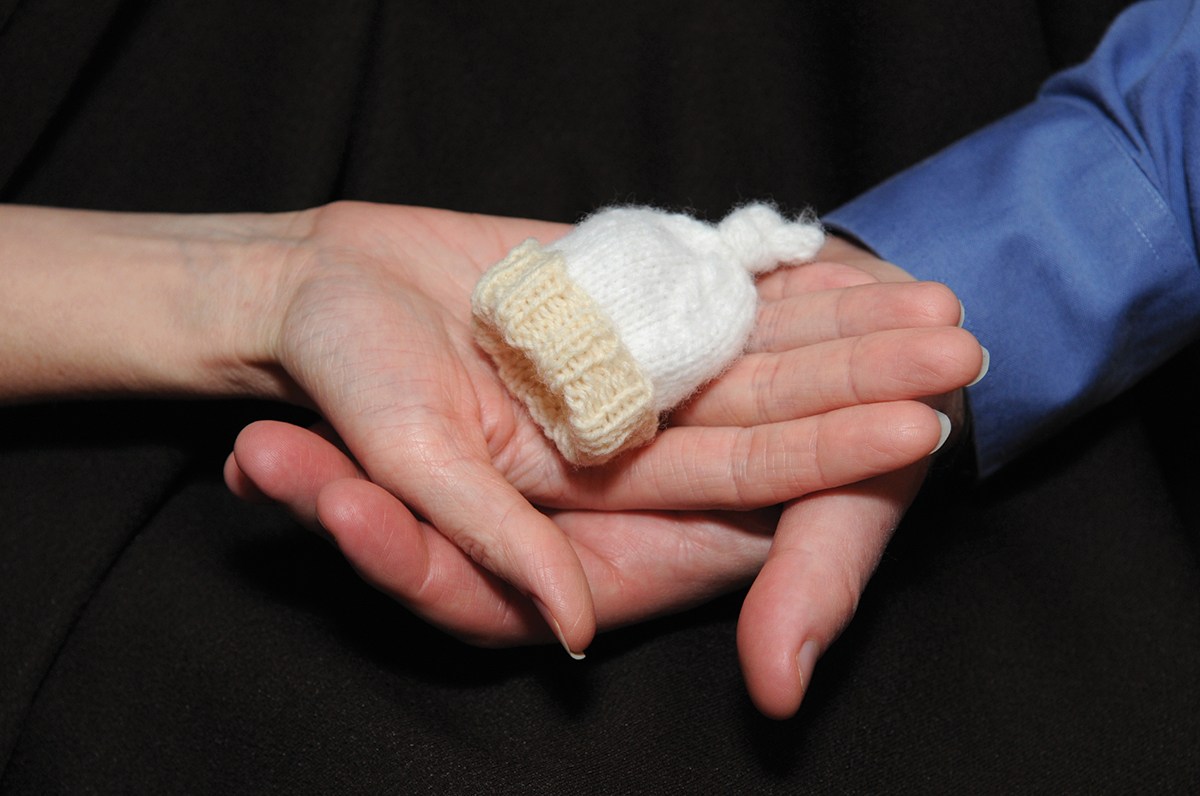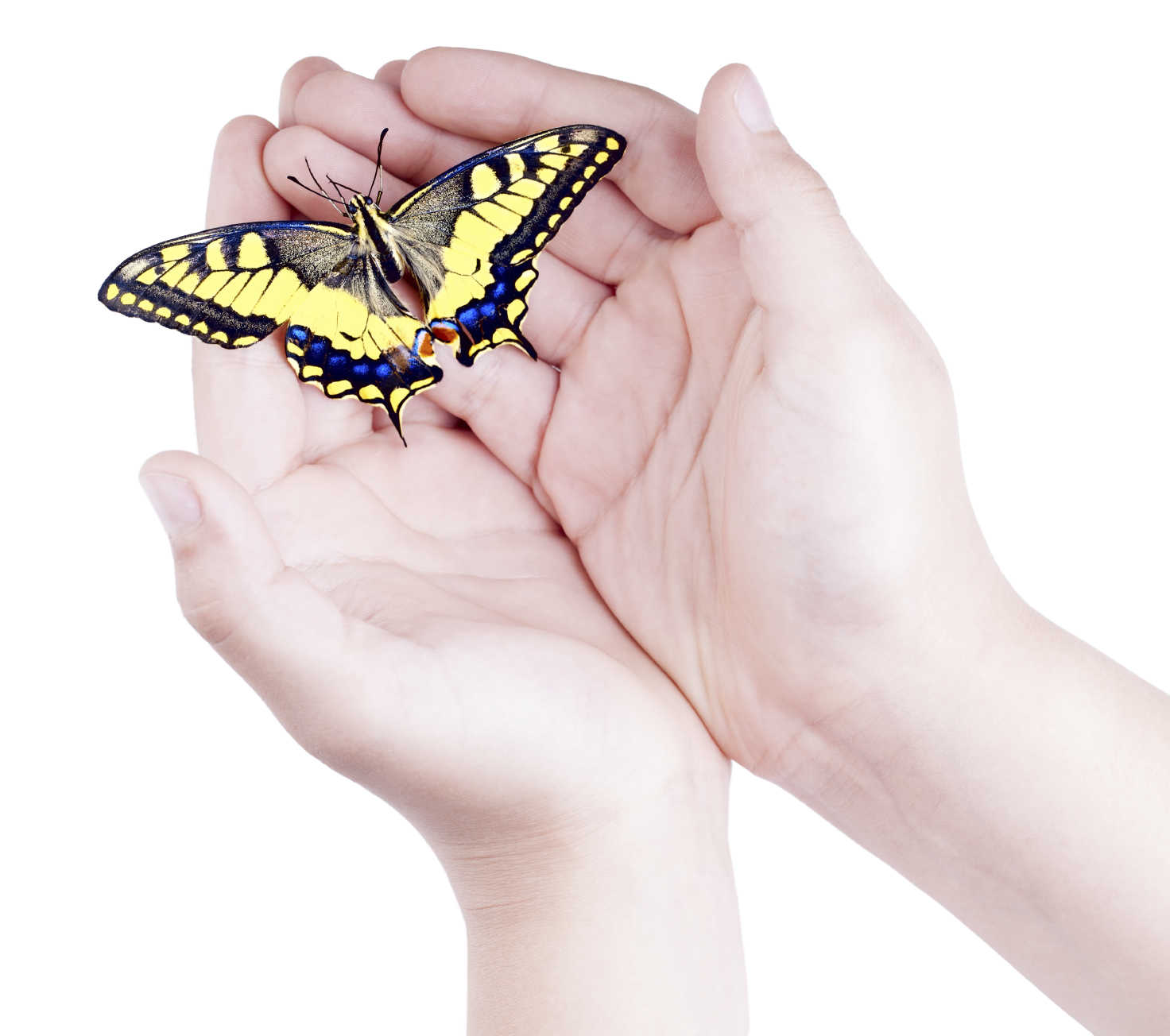 In some ways, Austin, Tex., mom Sara Pedrosa’s first childbirth in 2011 was typical. She wanted a natural birth, labored through the night and pushed for hours before finally glimpsing baby girl Amalia.
In some ways, Austin, Tex., mom Sara Pedrosa’s first childbirth in 2011 was typical. She wanted a natural birth, labored through the night and pushed for hours before finally glimpsing baby girl Amalia.
Amalia’s delivery was unique, though, and equal parts miraculous and heartbreaking. Unlike the other pink bundles in the labor and delivery unit, Amalia was terminally ill. Down syndrome and serious related complications, revealed during the third trimester, gave Amalia a razor-slim chance — around 1 percent — of making it to her due date. Even though she beat those odds, doctors said her chances of leaving the hospital alive were virtually nil.
Though Pedrosa and her husband, Hawk Thompson, were brand-new parents, they stepped straight into the soul-splintering chasm of child loss when Amalia died in the hospital 17 days after her birth.
“I read books about [losing a child], kind of as a survival mechanism, during pregnancy,” Pedrosa says. “But you can’t prepare for this.”
Short lives, lasting grief
According to the National Center for Health Statistics, more than 53,000 children (birth through age 19) die each year. Just over 29,000 of those are infants who die from natural causes, such as congenital birth defects or disease; drowning or other accidents; sudden infant death syndrome (SIDS); or unknown reasons. And about 1 million confirmed pregnancies end in miscarriage each year, according to HopeXchange.
These losses leave millions of grieving parents in their wake. Multiple studies show that the sadness experienced by bereft parents is one of the most profound and lasting types of grief. “People describe it as feeling like their heart is being ripped out of their chest,” says Michelle P. Maidenberg, Ph.D., president and clinical director of Westchester Group Works in Harrison, N.Y.
After Amalia died, “I was crushed, decimated . . . I was wounded,” says Thompson. “I lost the ability to express how depressed I was.”
The most unusual aspect of this type of grief may be its tenacity. In one study, parents who experienced the loss of a child were more depressed than their counterparts more than 18 years later.
Pointing the finger
The death of a child is a wellspring of guilt for parents — the sense that they could have changed or prevented the outcome, that they never got to say goodbye. For those who lose a child while parenting living children, this guilt fractures and multiplies around their other kids, who may experience a lack of time with their parents, the end of a stable routine and the upending of life as they know it.
For Darcy and Tim Pfeifer of Vancouver, Wash., the guilt set in months before their daughter Paige died in 2012, 15 days shy of her first birthday, from complications related to Tetralogy of Fallot, a congenital heart defect.
During those 11 months, the hardest part was not spending nights at home with their then 4-year-old son, Conrad, says Darcy. “For a year, he never knew who was picking him up from child care and where he would be sleeping or where he would be eating dinner.”
After Paige died, the Pfeifers took Conrad to Hawaii to try to heal as a new family of three. The diversion worked, sort of, but they couldn’t escape the guilt — it just took on a new tone. “There were emotional times,” says Darcy, who recalls “feelings of guilt that we were now able to travel because we no longer had to take care of an ill child.”
All alone together
 Despite the fact that millions of parents have lost a child, the experience can be profoundly isolating, says Westchester Group Works’ Maidenberg. Parents often expect to find common ground and solace with other bereaved parents, and instead discover the opposite.
Despite the fact that millions of parents have lost a child, the experience can be profoundly isolating, says Westchester Group Works’ Maidenberg. Parents often expect to find common ground and solace with other bereaved parents, and instead discover the opposite.
That’s what happened when she worked with a group of parents who lost children in the Newtown, Conn., school shooting in 2012. “Parents found that they were all in a different place with their mourning. Meeting together was more alienating than helpful.”
The loss is a giant part of a parent’s identity, but it’s invisible to others and awkward to talk about, says Pedrosa. “Amalia’s invisibility becomes apparent to me all the time,” she explains. “New people who come into my life have no idea about her.”
In a strange twist, the bereaved parent often becomes the consoler when the topic of the lost child comes up, says Aileen Carrell of University Place, Wash., a mom of three boys who lost 3-month-old daughter Lucy to SIDS in 2001. “People feel so bad when you tell them that you end up comforting them. It’s exhausting.”
The experience can also divide spouses; in one study, parents of deceased children had divorce rates up to eight times higher than other couples.
Carrell and her husband, Rob, weathered the storm, but “I think we were up and down for about five years,” she says. “Trying to talk to each other [about Lucy] is the saddest, hardest part, because we can’t bring her back.”
Seeking a new normal
Eventually most parents do find equilibrium, if not recovery. The child will always occupy a place in the parent’s life, says Maidenberg, and as grief shifts almost imperceptibly toward acceptance, some parents pour that energy into charity work.
Carrell has served on the board of the Northwest Infant Survival and SIDS Alliance for the past nine years. Reaching out to other grieving parents with resources and support is comforting, she says.
Others find solace in science. After losing 10 pregnancies, Corrina and Jon, a couple from Seattle, came across an article suggesting that younger siblings bear genetic material from previous pregnancies. Because of that, Corrina says, she views her “healthy, perfect” 22-month-old daughter as a beautiful combination of all their previous efforts.
It’s a sentiment that Pedrosa and Thompson can appreciate. Their second daughter, Ines, is now a thriving toddler. “She’s definitely Amalia’s sister, in terms of the light and warmth she radiates,” Thompson says. “Ines really is a gift.”
This time around, it’s the happiness that catches him off guard, slipping in not to replace the darkness but to change it.
The most surprising parts of parenting after losing a child, says Thompson, are the utterly ordinary moments they share with Ines. Toddler babbling. Sweet smiles at breakfast. Tears. “Three years ago, I didn’t think we’d ever get to this place,” he says. “What’s amazing is the normalcy.”
FAMILY RESOURCES
Memoirs
- The Blue Poppy and the Mustard Seed, Kathleen Willis Morton
- An Exact Replica of a Figment of My Imagination, Elizabeth McCracken
- Comfort: A Journey Through Grief, Ann Hood
- Losing Malcolm: A Mother’s Journey Through Grief, Carol Henderson
- This Lovely Life, Vicki Forman
Online communities
- Beyond Indigo
- The Compassionate Friends
- Glow in the Woods
- Healing Hearts
- Resolve: The National Infertility Association











